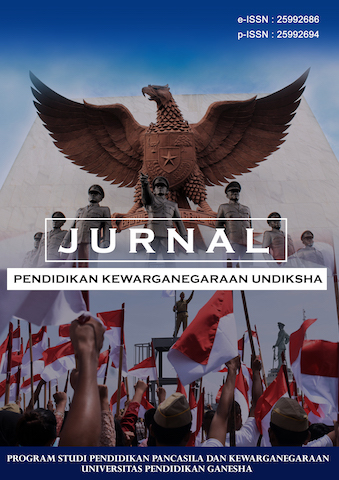PEMBINAAN TERHADAP NARAPIDANA LANJUT USIA DI LAPAS KELAS II A PADANG
Keywords:
Rehabilitation, Inmates, ReintegrationAbstract
This research examines the rehabilitation process of inmates, particularly elderly inmates, at the Class IIA Padang Penitentiary Institution. The penitentiary institution plays a crucial role in fulfilling correctional duties, which include rehabilitating inmates for their reintegration into society. In the context of Indonesian law, the Regulation Number 12 of 1995 concerning Penitentiary Institutions governs the regulatory framework for the rehabilitation process within penitentiary institutions, emphasizing aspects such as humane treatment, equal treatment, education, and the respect for human dignity. The Class IIA Padang Penitentiary conducts inmate rehabilitation through various activities tailored to different age groups, including elderly inmates. This rehabilitation encompasses personality development and self-sufficiency aspects, involving training and skill development programs that support reintegration. Nevertheless, the rehabilitation of elderly inmates faces physical and health-related challenges, as well as psychological and mental obstacles requiring special attention. This research identifies the methods employed by the penitentiary institution to address these challenges and underscores its commitment to providing rehabilitation that is tailored to the needs and ages of the inmates. The research concludes by emphasizing the importance of offering better opportunities to inmates, including the elderly, for transforming their lives and becoming responsible members of society after their release.
References
Barus, B. J. P., & Biafri, V. sylvia. (2020). Pembinaan Kemandirian Terhadap Narapidana Lanjut Usia Di Lembaga Pemasyarakatan Kelas I Medan. Nusantara: Jurnal Ilmu Pengetahuan Sosial, 7(1). Retrieved from http://dx.doi.org/10.31604/ jips.v7i1.2020.135-148
Beliferdo, A., Darmadi, A. A. N. Y., & Tjatrayasa, I. M. (2013). Pembinaan Narapidana Lanjut
DwAAQBAJ&printsec=frontcover&hl=id# v=onepage&q&f=false
Gabungan. Jakarta: Kencana Prenada Media Group. Retrieved from https://books.google.co.id/ books?id=RnA-
Irwan, P. P., & Widiarty, W. S. (2008). Pembaharuan Pemikiran Dr. Sahardjo Mengenai Pemasyarakatan Narapidana. Jakarta: Indiholl. Retrieved from https:// opac.perpusnas.go.id/DetailOpac.aspx? id=498894
Supriyono, B. (2012). Peningkatan Kinerja Pembinaan Lembaga Pemasyarakatan Terbuka Kelas IIB Nusakambangan. Semarang: Kementerian Hukum dan Hak Asasi Manusia Jawa Tengah.
Tumpa, H. A. (2009). Peluang dan Tantangan Eksistensi Pengadilan HAM di Indonesia. Jakarta: Kencana Prenada Media Group.
Usia Di LP Karangasem. Kertha Wicara, 1 (5). Retrieved from https://ojs.unud.ac.id/ index.php/kerthawicara/article/ view/7157/5416
Yusuf, A. M. (2014). Metode Penelitian Kuantitatif, Kualitatif dan Penelitian
Downloads
Published
Issue
Section
License

This work is licensed under a Creative Commons Attribution-ShareAlike 4.0 International License.
Authors who publish with the Jurnal Pendidikan Kewarganegaraan Undiksha agree to the following terms:
- Authors retain copyright and grant the journal the right of first publication with the work simultaneously licensed under a Creative Commons Attribution License (CC BY-SA 4.0) that allows others to share the work with an acknowledgment of the work's authorship and initial publication in this journal.
- Authors are able to enter into separate, additional contractual arrangements for the non-exclusive distribution of the journal's published version of the work (e.g., post it to an institutional repository or publish it in a book), with an acknowledgment of its initial publication in this journal.
- Authors are permitted and encouraged to post their work online (e.g., in institutional repositories or on their website) prior to and during the submission process, as it can lead to productive exchanges, as well as earlier and greater citation of published work. (See The Effect of Open Access)










